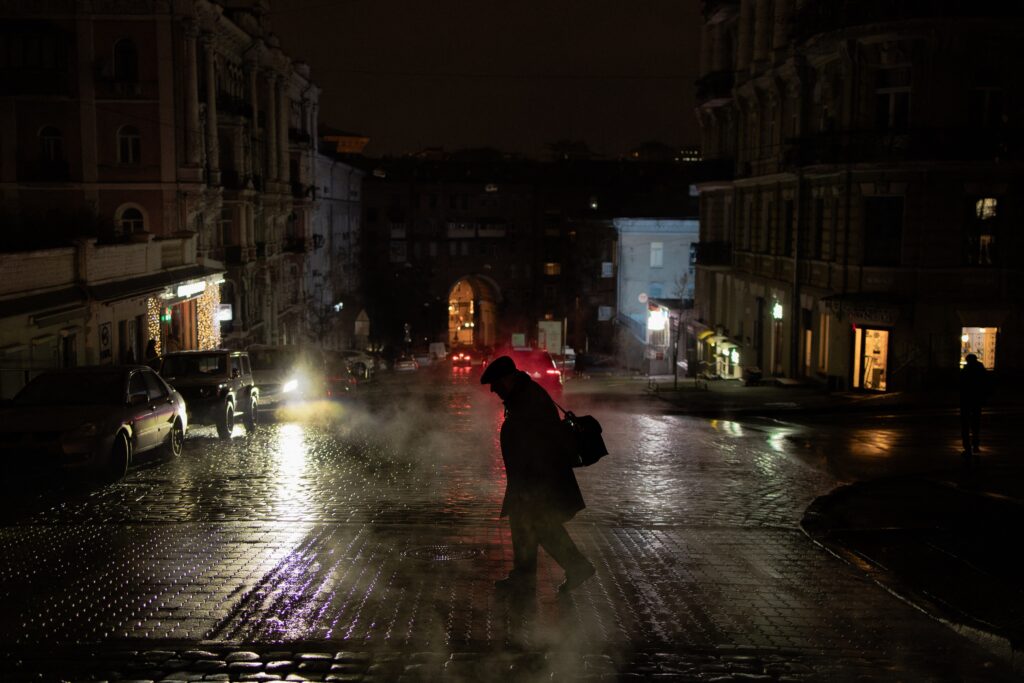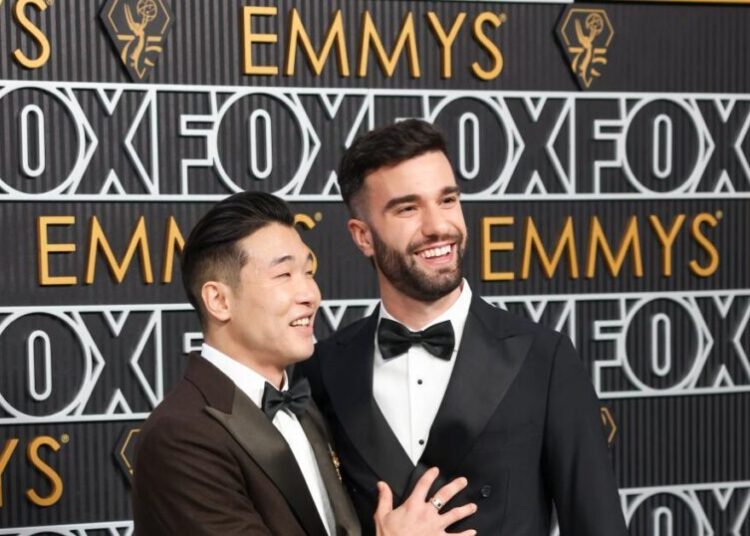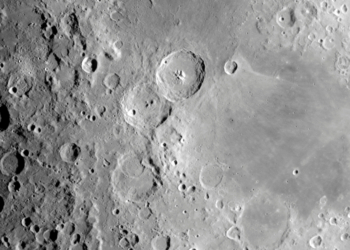BRUSSELS — As Washington and Moscow engage in talks that could reshape Europe’s future, the continent’s leaders say their best bet is to stick together.
But first, they have to get on the same page.
Behind the show of unity, which the Europeans are now putting on as much for President Donald Trump as for Russian President Vladimir Putin, there are deep-rooted differences. The cracks have emerged in big conversations on how to keep arming Ukraine without U.S. money and how to respond to an increasingly tense confrontation with Russia.
Those steering the European ship say the stakes are high as ever amid Washington’s fresh push for a deal to end Russia’s war in Ukraine, without seemingly wanting European input.
French President Emmanuel Macron said “we are clearly at a crucial juncture.” German Chancellor Friedrich Merz described this as a “fateful moment” of European unity. And the head of the E.U.’s executive body, Ursula von der Leyen, appealed to the bloc’s 27 nations: “We must remain united.”
As Europeans try to keep outside forces at bay, however they are wrestling with splits from within, and their politics are swayed by calls to spend the money at home, not on Kyiv. Even trying to defray expenses by using Russia’s frozen assets to fund Ukraine has run afoul of tiny Belgium, which holds most of the funds and fears bearing the brunt of any retaliation.
The continent is also divided over how much of a threat Moscow really is, as those on Russia’s borders warn that their neighbors to the west are not being hawkish enough. This is all without even mentioning Hungary, whose Kremlin-friendly prime minister, Viktor Orban, is seizing on his friendship with Trump and a Ukrainian corruption scandal to bash E.U. policy.
Wary of an emboldened Russia at their door, Europe’s top leaders have pushed back on some ideas from Washington, their traditional ally, and pledged to keep strengthening Ukrainian President Volodymyr Zelensky’s hand. They have countered initial U.S. proposals that limiting NATO’s presence or E.U. powers to maintain sanctions or accept Ukraine as a new member.
Still, the talks show that Europe will never compete as a global player if its leaders cannot build political unity, said Brando Benifei, a European Parliament lawmaker who chairs the delegation to the United States.
“Sanctions are very important but that cannot be the only point where we agree,” he said. “The E.U. is divided. … In foreign policy, it is 27 fragmented entities that need to agree on every step, and this makes it extremely difficult to be bold, to be imaginative, to find a solution.”
Without greater independence, he warned, Europeans risk getting “absorbed into spheres of influence” by the U.S., Russia or China: “That is not the destiny I would favor for Europe, and autonomy requires unity.”
European nations have become Kyiv’s biggest backers since the U.S. withdrew direct financial support, though finding cash in sluggish economies is an increasingly touchy subject.
The controversial E.U. plan to tap into Russian sovereign assets emerged to fill the gap, but it remains deadlocked. Belgium may be the key holdout, but other E.U. capitals also have reservations about how to spend the Russian assets.
Washington, however, seems not to have reservations. As delicate European negotiations dragged on, a previous U.S. proposal envisaged investing $100 billion of those assets into Ukraine reconstruction and Washington reaping half the profits, while returning the rest to Moscow.
Senior European officials went to Geneva for weekend talks to change the leaked proposals, though their ideas hovered on the sidelines of negotiations on the plan between the U.S. and Ukraine.
Now, the European Union is racing for consensus on funding for Ukraine to maintain its leverage, diplomats said. E.U. officials still hope for a funding decision before Christmas.
Gabrielius Landsbergis, a former Lithuanian foreign minister, said the E.U. wouldn’t be scrambling if it had pressed ahead with its own plans on “financing the way forward” for Ukraine.
“Then who cares what is agreed between Americans and Russians if Europe is ready to do their own thing,” he said. Instead, “we are unable to present something practical to Ukraine, unable to present ourselves as a winning side, or at least with ideas of how to win, to Trump and to Putin.”
That’s also rooted in different views of the threat. In Eastern Europe near Ukraine and Russia’s border, where countries like Lithuania and Poland are marked by their own histories, the alarm bells about Russia ring louder.
Nordic countries are also starting to complain that they give more to Ukraine than others, including their Mediterranean neighbors to the south, which have different security sensitivities. The friction is threatening to boil over if European leaders can’t secure a fresh source of funding.
Swedish Foreign Minister Maria Malmer Stenergard told Politico bluntly in recent days that it was “not sustainable” and “not reasonable in any way” for Nordic countries to shoulder so much of the cost of aid to Ukraine.
At a recent meeting in Brussels, Lithuanian Foreign Minister Kęstutis Budrys told his European counterparts to approve the Russian assets plan or put up the cash for Ukraine from their national budgets.
“I know what Russians see and what they think about us, that we cannot handle it,” he said. “That’s why frozen assets have to be used … otherwise, I want to see the money, not the political solidarity talks. Show me the money.”
At the same meeting, his Hungarian counterpart was calling the E.U. executive branch, the European Commission, “insane” for trying to drum up more funds for Ukraine.
Hungarian Foreign Minister Peter Szijjarto said the E.U. should “have immediately stopped the payments to Ukraine” after a major Ukrainian corruption probe implicated Zelensky’s associates. “The establishment in Brussels has been living under illusions,” he said. “It is an illusion to say that the time is on the side of Ukraine.”
E.U. officials have portrayed Hungary’s Orban as a lone, black sheep, but they fret Budapest will increasingly find allies in other countries including Slovakia, the Czech Republic and — depending on how the French 2027 presidential election goes — possibly France.
For all their differences, European allies have so far mobilized some cash and diplomatic clout with Trump to bolster Zelensky, as they also hike their defense budgets.
There has been less unity on how to deal with Russia, however. While the continent’s top leaders all accuse Moscow of trying to destabilize them — allegations it rejects — they can’t seem to agree on how to respond.
After an explosion damaged a rail line in Poland last week, Foreign Minister Radoslaw Sikorski accused Russia of “an act of state terrorism” and vowed the response would be “more than just diplomatic.”
Warsaw’s fire breathing, however, doesn’t match the more restrained messaging from NATO officials and some European capitals urging calm. With murky drone incursions rattling European cities for weeks, NATO diplomats have said they are waiting for ongoing investigations while insisting on the need to boost defenses against Moscow.
“How can Putin take it seriously?” Landsbergis, the former Lithuanian official, said. “Imagine if Lithuania is attacked … the only thing there will be is a bureaucratic investigation?”
At a defining moment, “if we’re unable to get on the same page … how is the European Union considering it will survive?” he asked. Some nations may take matters into their own hands and build smaller, regional alliances if the E.U. is too slow, Landsbergis added. “Then we might see more of fractures within the E.U.”
In another example splitting some Europeans, Poland is refusing a German request to extradite a Ukrainian suspect in the explosions of the Nord Stream gas pipelines.
That’s despite a nearly three-year investigation into the sabotage of pipelines that ran from Russia to Germany, a dramatic attack the Europeans initially blamed on Moscow but is now widely suspected to be linked to Ukrainians.
The extradition rift has played into long-standing Polish grievances with their German neighbors about Russian policy. “The problem with Nord Stream 2 is not that it was blown up. The problem is that it was built,” Polish Prime Minister Donald Tusk has said of the case.
As Europe tries to rely less on Washington, national interests are also getting in the way of fast-tracking common defense projects, such as a drone shield or a fighter jet. European diplomats have voiced concern that the frictions might contaminate plans for a joint military buildup.
“The E.U. is a mostly soft power in a hard world,” said one European diplomat, “but we are trying.”
Beatriz Ríos in Brussels contributed to this report.
The post Europe strains to speak with one voice as U.S., Russia decide Ukraine’s fate appeared first on Washington Post.




